Who doesn’t love a good college town? Whether you’re there for an education, working there, retiring there or just going for a visit, college towns are rich with a diversity of people, cultures, food and activities.
College towns often have plenty of jobs and tend to be walkable, bicycle-friendly places with good public transportation and accessible health care. They’re never boring and have something for everyone, from lectures and film festivals to giant Halloween block parties (like the one in Athens, Ohio.)
Whether your taste is for art galleries, sports, music, nightlife or even the quirky (Storr, Conn., has a puppet museum) it’s likely you’ll keep busy year round, even in summer, when some towns have lively festivals that last weeks (Ann Arbor has a three-week summer festival) or even months (Iowa City’s lasts two months.) And don’t forget the unique coffee shops, bars and cheap eats around town.
For students looking for a college, does the surrounding city or town matter? Yes, says Herman E. Walston, a professor of academic affairs at Kentucky State University. The city can provide part-time job opportunities for students while at college, as well as full-time employment after graduation. It can also provides exposure to new things, he says. “A surrounding town/city provides cultural activities and events to further enlighten the student’s awareness of what the world is like if they are from rural communities with limited resources.”
But the cost of living in urban college towns can be high, says Richard Fossey, a professor emeritus at the University of Louisiana in Lafayette. Fossey attended law school at the University of Texas in Austin, which is No. 1 on this list. Back then, he says, Austin was known as a mellow town with a low cost of living.
“Today, the cost of living in Austin is out of sight, and traffic is choking the freeways and streets. It is still a lovely place to live, but housing is quite expensive.”
To find the coolest college towns in the country, WalletHub gathered at data from 415 cities, from small to large, and scored them on their cost of living, social environment, and academic/economic opportunities. Only towns with a university or college population of 7,500 students or more were included.
- Cost of living considers rental prices, college cost and student loan debt, but also the price of movies, bowling, pizza, burgers and fitness centers.
- Social environment includes the share of population aged 18-35, share of singles, gender balance, crime rate, plus the number of cafes, breweries, food trucks, shopping centers and NCAA sports teams.
- Academic/economic opportunities includes quality of higher education, earning potential for grads, share of part-time jobs, unemployment, entrepreneurial activity and brain drain.
Based on WalletHub’s research, these are the best college towns in America.
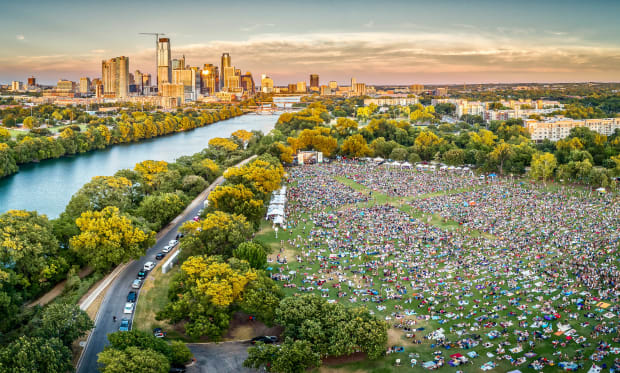
1. Austin, Texas
- Cost of living rank: 209
- Social environment rank: 10
- Academic and economic opportunities rank: 23
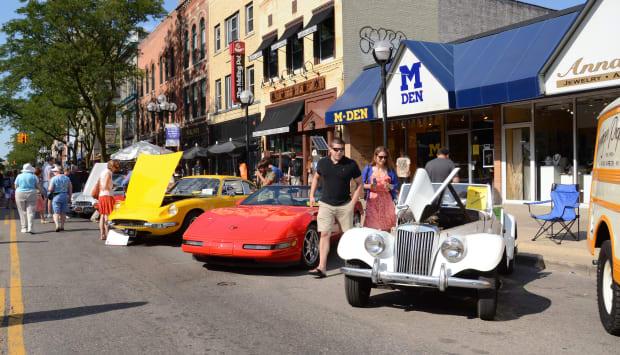
2. Ann Arbor, Mich.
- Cost of living rank: 250
- Social environment rank: 17
- Academic and economic opportunities rank: 14
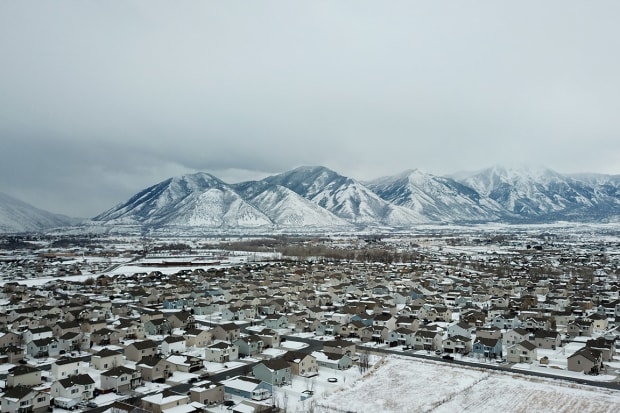
3. Provo, Utah
- Cost of living rank: 22
- Social environment rank: 63
- Academic and economic opportunities rank: 45
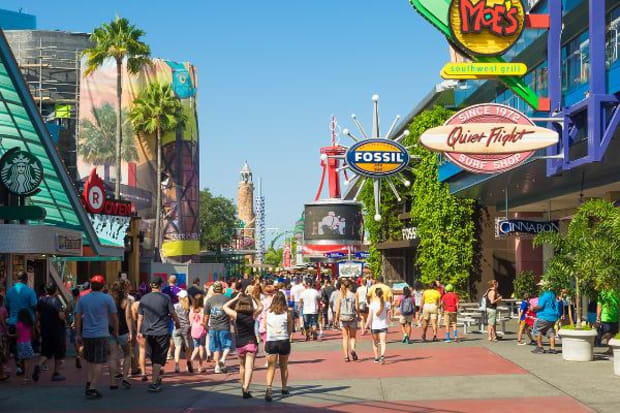
4. Orlando, Fla.
- Cost of living rank: 80
- Social environment rank: 4
- Academic and economic opportunities rank: 141
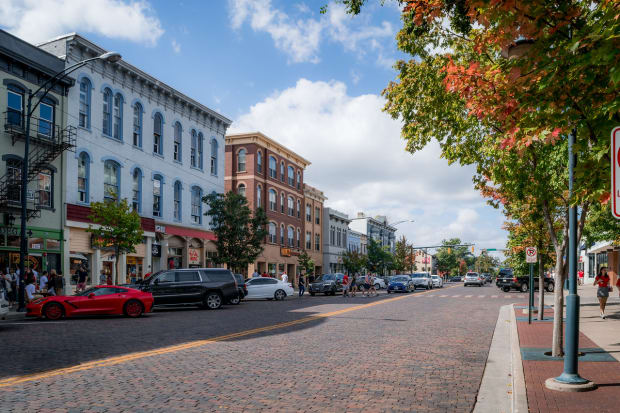
5. Oxford, Ohio
- Cost of living rank: 3
- Social environment rank: 1
- Academic and economic opportunities rank: 304
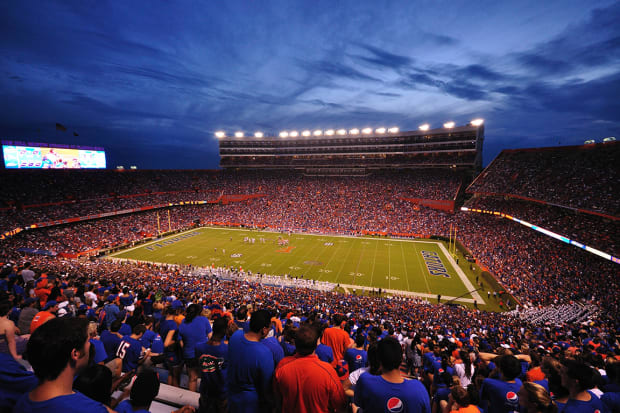
6. Gainesville, Fla.
- Cost of living rank: 130
- Social environment rank: 62
- Academic and economic opportunities rank: 61
Shutterstock
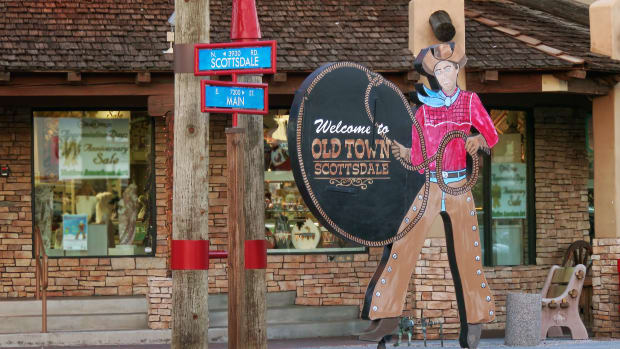
7. Scottsdale, Ariz.
- Cost of living rank: 309
- Social environment rank: 140
- Academic and economic opportunities rank: 1
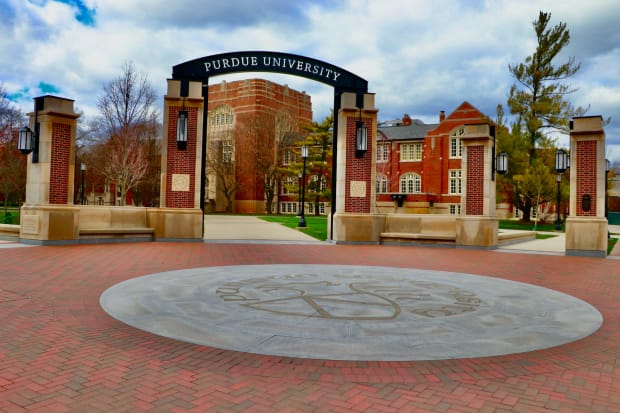
8. West Lafayette, Ind.
- Cost of living rank: 39
- Social environment rank: 39
- Academic and economic opportunities rank: 112

9. Rexburg, Idaho
- Cost of living rank: 5
- Social environment rank: 97
- Academic and economic opportunities rank: 118
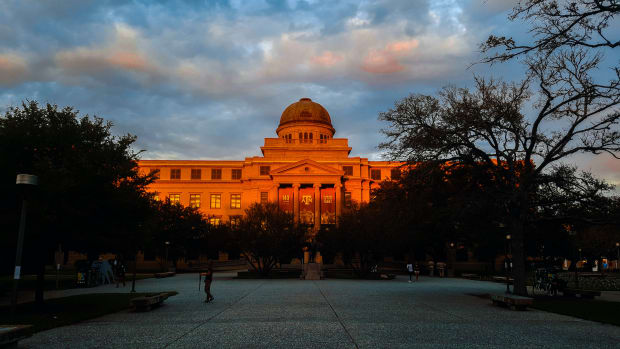
10. College Station, Texas
- Cost of living rank: 28
- Social environment rank: 53
- Academic and economic opportunities rank: 125
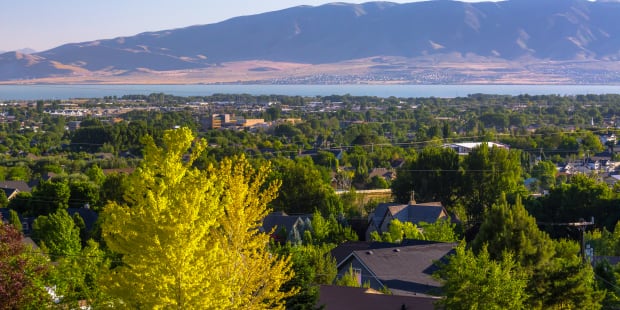
11. Orem, Utah
- Cost of living rank: 133
- Social environment rank: 206
- Academic and economic opportunities rank: 19
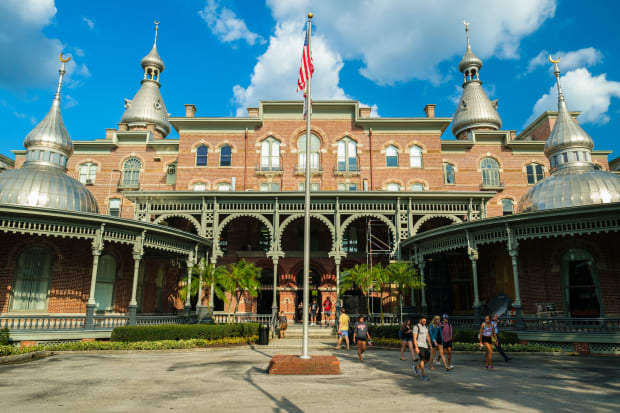
12. Tampa, Fla.
- Cost of living rank: 175
- Social environment rank: 22
- Academic and economic opportunities rank: 92
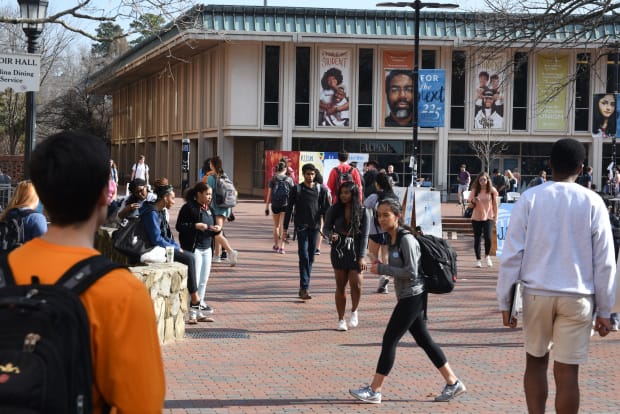
13. Chapel Hill, N.C.
- Cost of living rank: 185
- Social environment rank: 72
- Academic and economic opportunities rank: 55
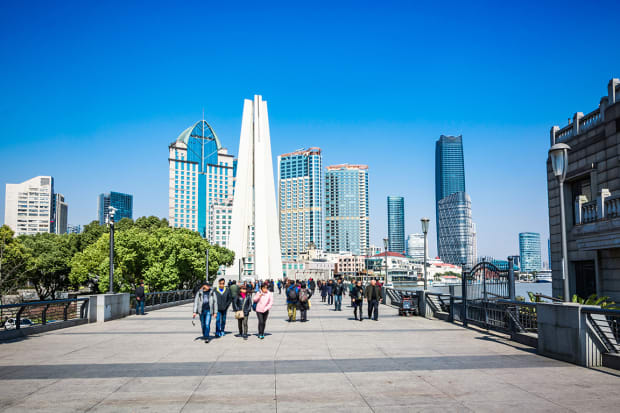
14. Raleigh, N.C.
- Cost of living rank: 198
- Social environment rank: 35
- Academic and economic opportunities rank: 74
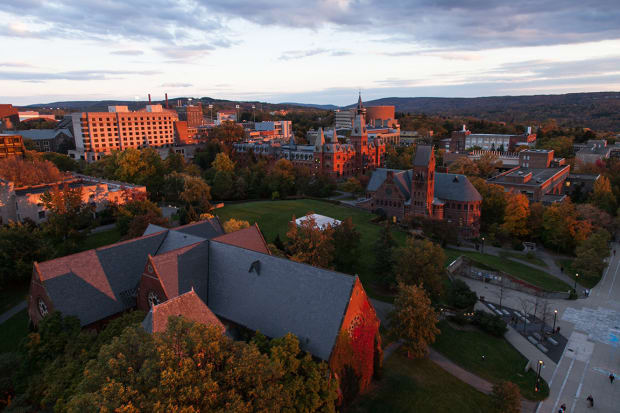
15. Ithaca, N.Y.
- Cost of living rank: 285
- Social environment rank: 11
- Academic and economic opportunities rank: 57
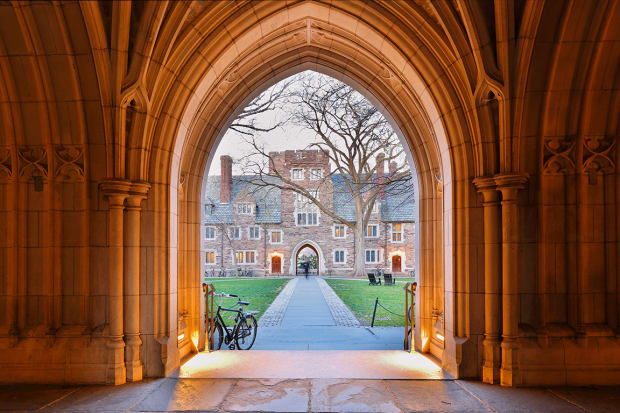
16. Princeton, N.J.
- Cost of living rank: 388
- Social environment rank: 85
- Academic and economic opportunities rank: 2

17. Irvine, Calif.
- Cost of living rank: 376
- Social environment rank: 68
- Academic and economic opportunities rank: 6
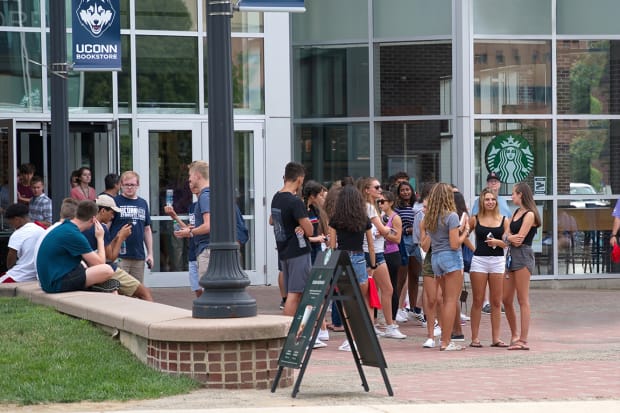
18. Storrs, Conn.
- Cost of living rank: 213
- Social environment rank: 3
- Academic and economic opportunities rank: 140
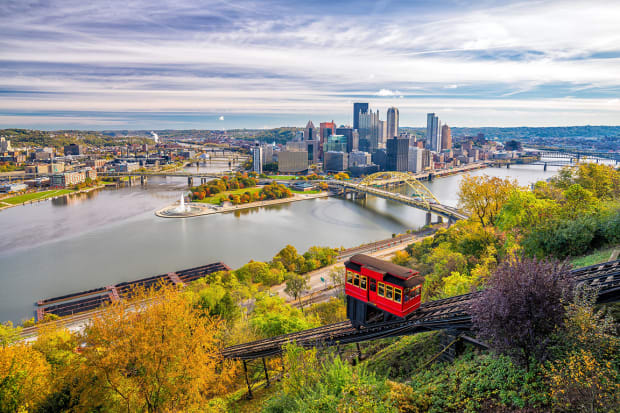
19. Pittsburgh
- Cost of living rank: 200
- Social environment rank: 9
- Academic and economic opportunities rank: 136
Shutterstock
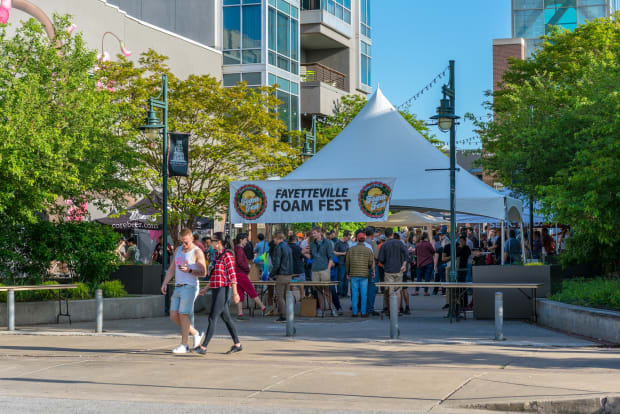
20. Fayetteville, Ark.
- Cost of living rank: 16
- Social environment rank: 131
- Academic and economic opportunities rank: 119
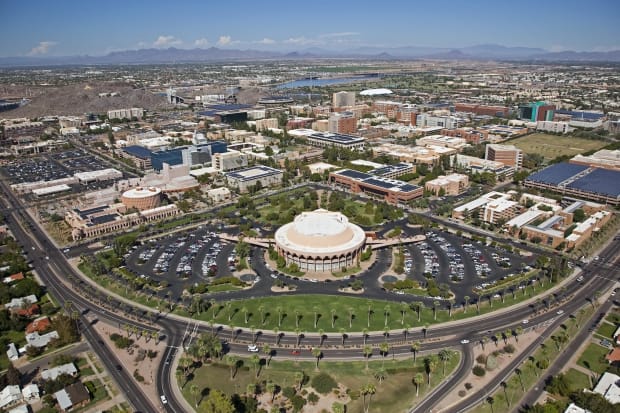
21. Tempe, Ariz.
- Cost of living rank: 128
- Social environment rank: 52
- Academic and economic opportunities rank: 124
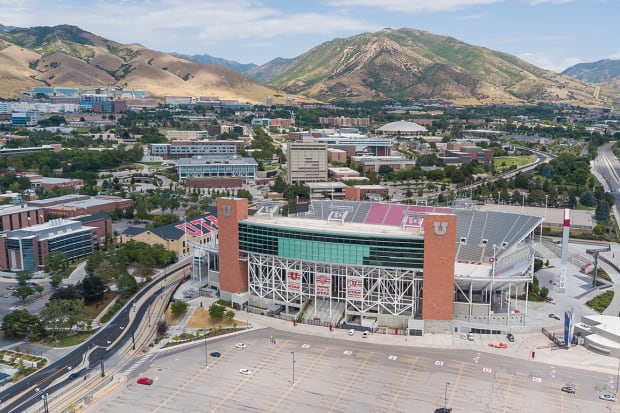
22. Salt Lake City, Utah
- Cost of living rank: 168
- Social environment rank: 66
- Academic and economic opportunities rank: 95
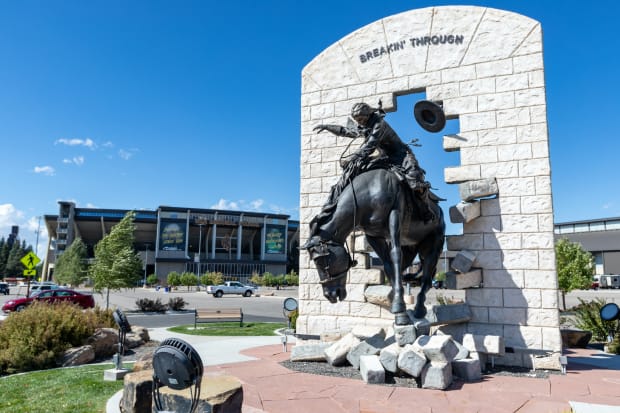
23. Laramie, Wyo.
- Cost of living rank: 34
- Social environment rank: 50
- Academic and economic opportunities rank: 188

24. Seattle
- Cost of living rank: 374
- Social environment rank: 8
- Academic and economic opportunities rank: 34
Shutterstock

25. Atlanta
- Cost of living rank: 257
- Social environment rank: 37
- Academic and economic opportunities rank: 70

26. Reno, Nev.
- Cost of living rank: 203
- Social environment rank: 51
- Academic and economic opportunities rank: 98
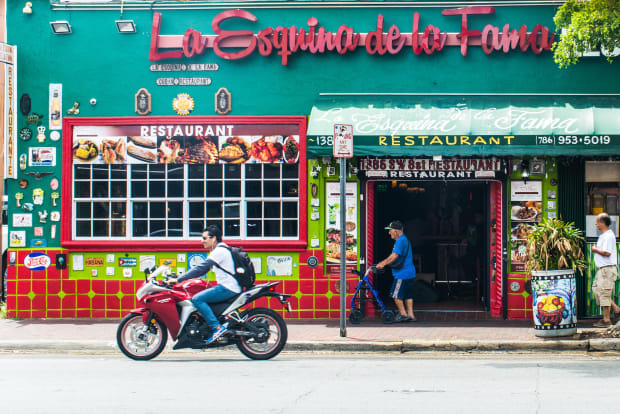
27. Miami
- Cost of living rank: 207
- Social environment rank: 6
- Academic and economic opportunities rank: 184
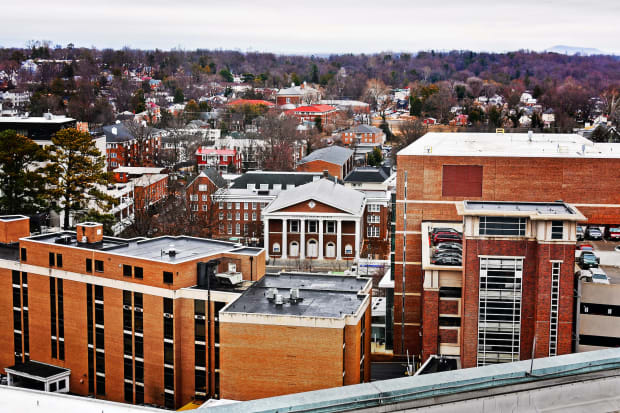
28. Charlottesville, Va.
- Cost of living rank: 279
- Social environment rank: 31
- Academic and economic opportunities rank: 68
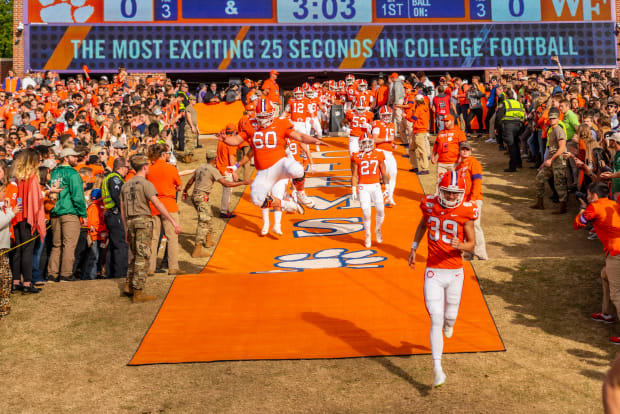
29. Clemson, S.C.
- Cost of living rank: 54
- Social environment rank: 26
- Academic and economic opportunities rank: 257
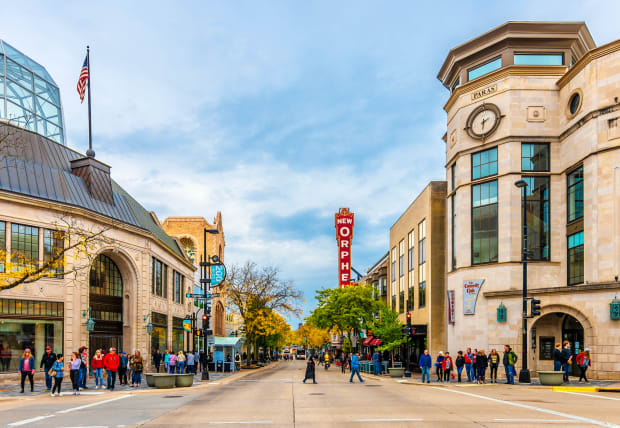
30. Madison, Wis.
- Cost of living rank: 216
- Social environment rank: 58
- Academic and economic opportunities rank: 94
See the full ranking of all the college towns and the methodology for this ranking at WalletHub.







